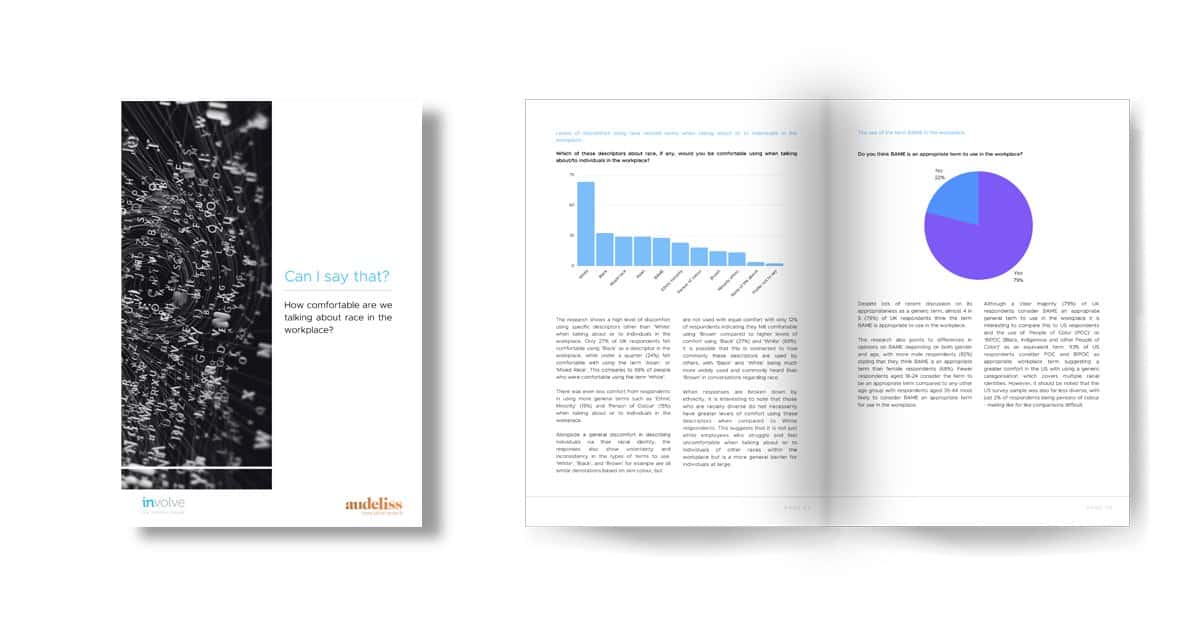As the Black Lives Matter movement gained global attention in May last year, it was clear to see that organisations had not done enough to fight racial injustice, and hadn’t had crucial conversations centred around race at work. We are aware that a huge part of creating inclusive workplaces is the ability to openly discuss issues that drive change, especially when it comes to talking about systemic racism in businesses.
Therefore, a year on from the upsurge in the BLM movement, we wanted to find out if it has made an impact on how companies and individuals conduct important conversations to help erase racism within their organisations. Together with INvolve and Censuswide, we organised a survey of 500 UK and 500 US non-HR Business Decision Makers, assessing how comfortable they are using appropriate language about and towards racially diverse colleagues, and how they carry out race and racism-related conversations in the workplace.
The ‘Can I say that? How comfortable are we talking about race in the workplace?’ report contains key findings from this research and provides an insight on how the conversation on race is developing in organisations.
Our findings suggest that race is a topic that is being discussed and recognised amongst decision makers, with over 80% of respondents making an effort to learn the best language to use. However, the majority still feel afraid of using the wrong terms or causing offense when talking about issues of race. It is interesting to note that it is not only white respondents who feel uncomfortable when talking about or to individuals of other races, proving that wider and frequent discussion is essential.
This research also looked into the issue of race discrimination in business. Three quarters of all respondents agreed that non-white people face prejudice in the workplace because of their race, with over 70% of them saying that they have witnessed one or more instance of racism within the last 3 years. Despite this figure, 4 in 10 people surveyed don’t think that race and racism should be discussed at work, with nearly 20% of those individuals stating that they don’t believe that racism exists in their workplace. This is a huge evidence that conversations are desperately needed in order to break down these barriers for businesses.
The report indicates that employees are willing to learn and discuss race at work, therefore it is imperative for businesses to become active in their advocacy for inclusion. Removing the fear of offending and creating strong discourse, training, and framework around the issue is a great start to encourage long-term change.
Read more about our findings by downloading our report here.

